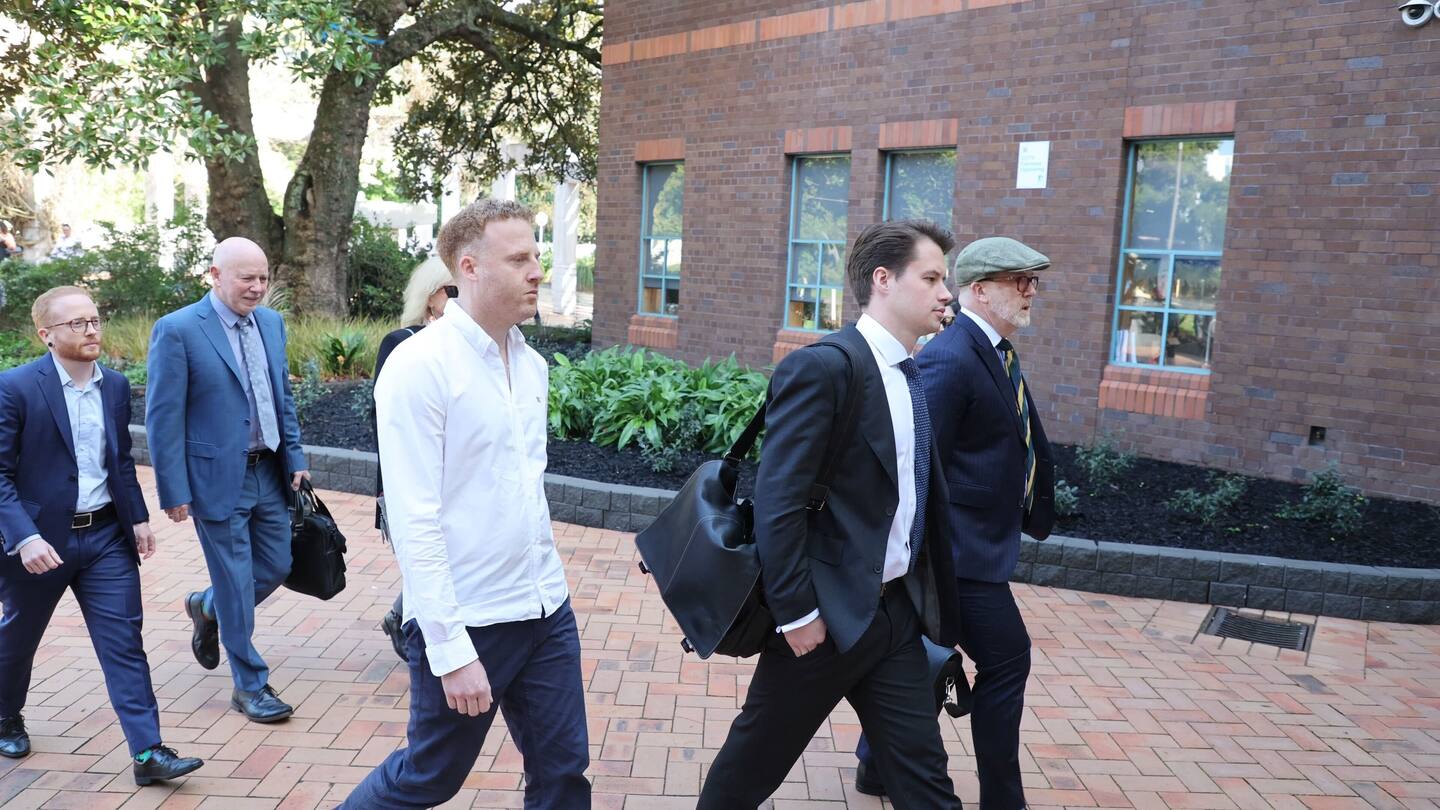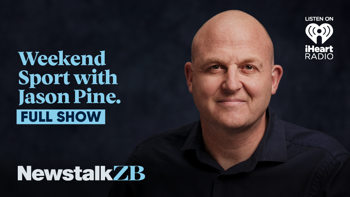WARNING: DISTRESSING CONTENT
Police investigating the death of Pauline Hanna were too “intoxicated” by salacious details of sex and drugs to step back and take a realistic look at what was so obviously a suicide, lawyer Ron Mansfield KC told jurors today as the focus of the Philip Polkinghorne murder trial turned to the defence.
“That would have to be the perfect murder,” Mansfield said during his opening address this morning, emphasising that there was no physical or pathologist evidence to support the Crown’s claim that the eye surgeon’s wife was strangled on Easter Monday 2021.
“Can I suggest it’s not [the perfect murder]. It’s a phantom.”
Mansfield also announced today that his high-profile client would not be testifying, explaining that doing so – after already giving an “unguarded” police interview that was later “broadcast to the nation” as part of the trial – would only encourage the Crown to distract again with questions about sex and drugs.
STORY CONTINUES AFTER BLOG
STORY CONTINUES
Polkinghorne arrived at court this morning accompanied by family members, including two of his sons, for the first time during his trial.
His sister Ruth was holding his arm as the contingent made their way into the courthouse to hear the defence open its case.
 Two of Philip Polkinghorne's sons walked into the courthouse with him on Friday morning. Photo / Michael Craig
Two of Philip Polkinghorne's sons walked into the courthouse with him on Friday morning. Photo / Michael Craig
Jurors in the High Court at Auckland have now sat through nearly five straight weeks of testimony, with the Crown having called its final witness.
Jun Lee, a digital forensic analyst and civilian police employee, was called at the last minute on Wednesday to rebut a revelation by the defence that Hanna’s phone had logged two interactions around 4am on the morning of her death. Polkinghorne’s 111 call reporting her death was about four hours later.
Jurors were left with the impression that the 4.04 and 4.05am logs were indications that Hanna’s iPhone had been used at that time to draft two messages – one to her husband and another to the teen daughter of a friend. If that was the case, the iMessage texts were deleted before they were sent and their contents are unknown, Mansfield suggested on Tuesday as Detective Andrew Reeves sat in the witness box for a third day.
The defence implied the messages could have been aborted goodbye notes as she contemplated suicide. If jurors decide the evidence is sufficient to conclude that Hanna was on the phone at 4am, it will significantly reduce the timeframe for when she died.
When asked about the logs on Tuesday, Reeves suggested there might be alternative explanations. Polkinghorne knew his wife’s pin code, he pointed out. But Reeves said most questions about the log entries would be best directed at an IT expert.
Lee, the expert, was adamant the defence was flat wrong in its interpretation of the data.
“It just runs in the background,” he said. “I have checked. There was no user interaction of the phone at all.”
Lee explained that iPhones frequently run checks of other iPhone users on a person’s contact list – verifying their authenticity in an effort to protect against phishing scams. Doing so will create a log. But if someone was to use iMessaging, even if to draft a note that was deleted before it was sent, there would be “heaps of logs” to make it evident.
Hanna’s phone, he said, had no logs indicating that it had been turned on or even picked up around that time.
Mansfield asked if such logs are sometimes omitted when extracting data from a phone for analysis. Lee insisted that wasn’t the case.
“It’s fairly straightforward,” the witness said. “We deal with this every single day.”
The trial ended early on Wednesday so Mansfield could consult with his own tech expert in Australia. He sought extra time yesterday for his preparations, which meant the trial didn’t go ahead.
Mansfield briefly addressed the jury with an opening statement at the start of the trial but he will have an opportunity today to give a more fulsome outline of the defence case before the first of Polkinghorne’s witnesses are called.
Craig Kapitan is an Auckland-based journalist covering courts and justice. He joined the Herald in 2021 and has reported on courts since 2002 in three newsrooms in the US and New Zealand.
The Herald will be covering the case in a daily podcast, Accused: The Polkinghorne Trial. You can follow the podcast at iHeartRadio, Apple Podcasts, Spotify, through The Front Page feed, or wherever you get your podcasts.
Take your Radio, Podcasts and Music with you









